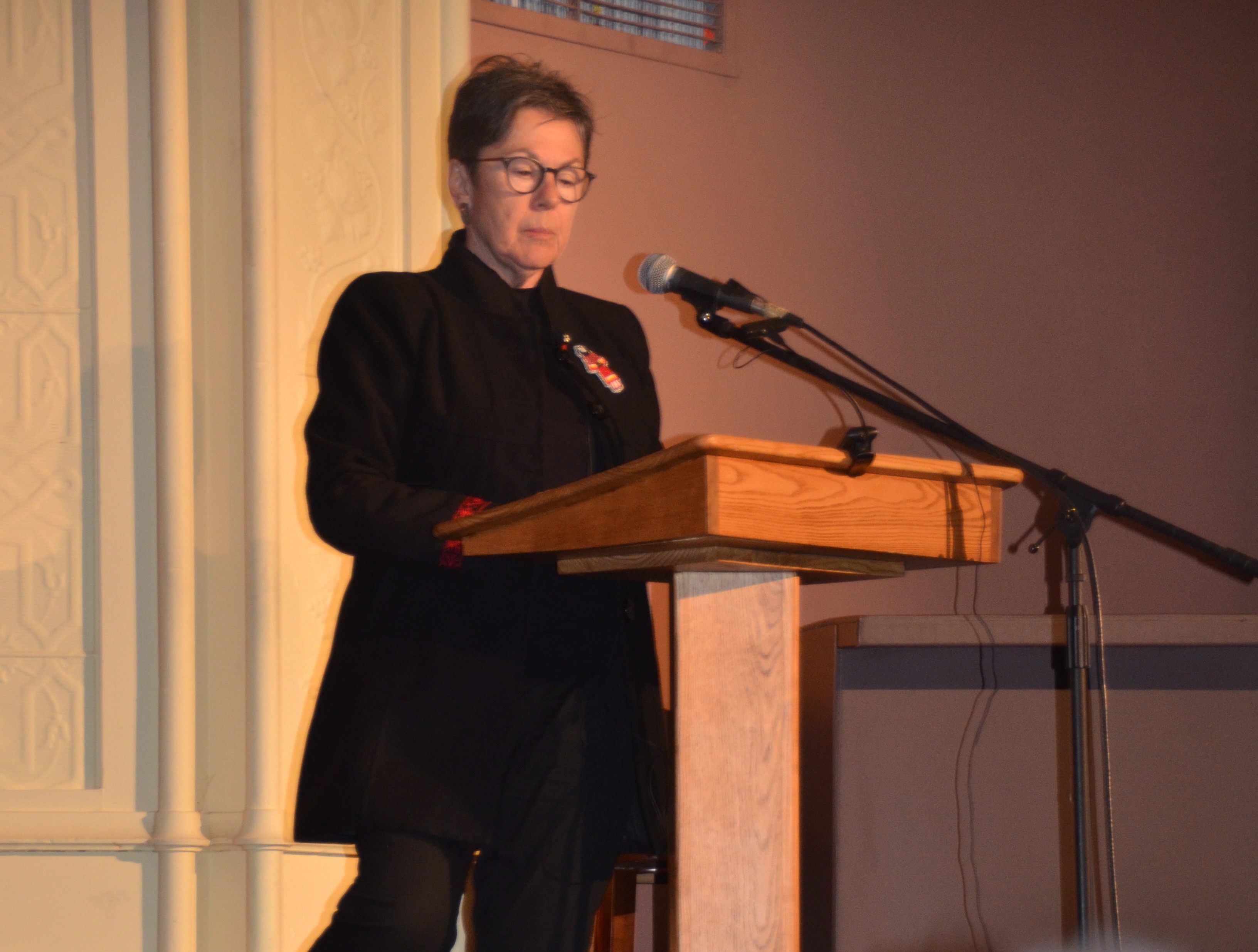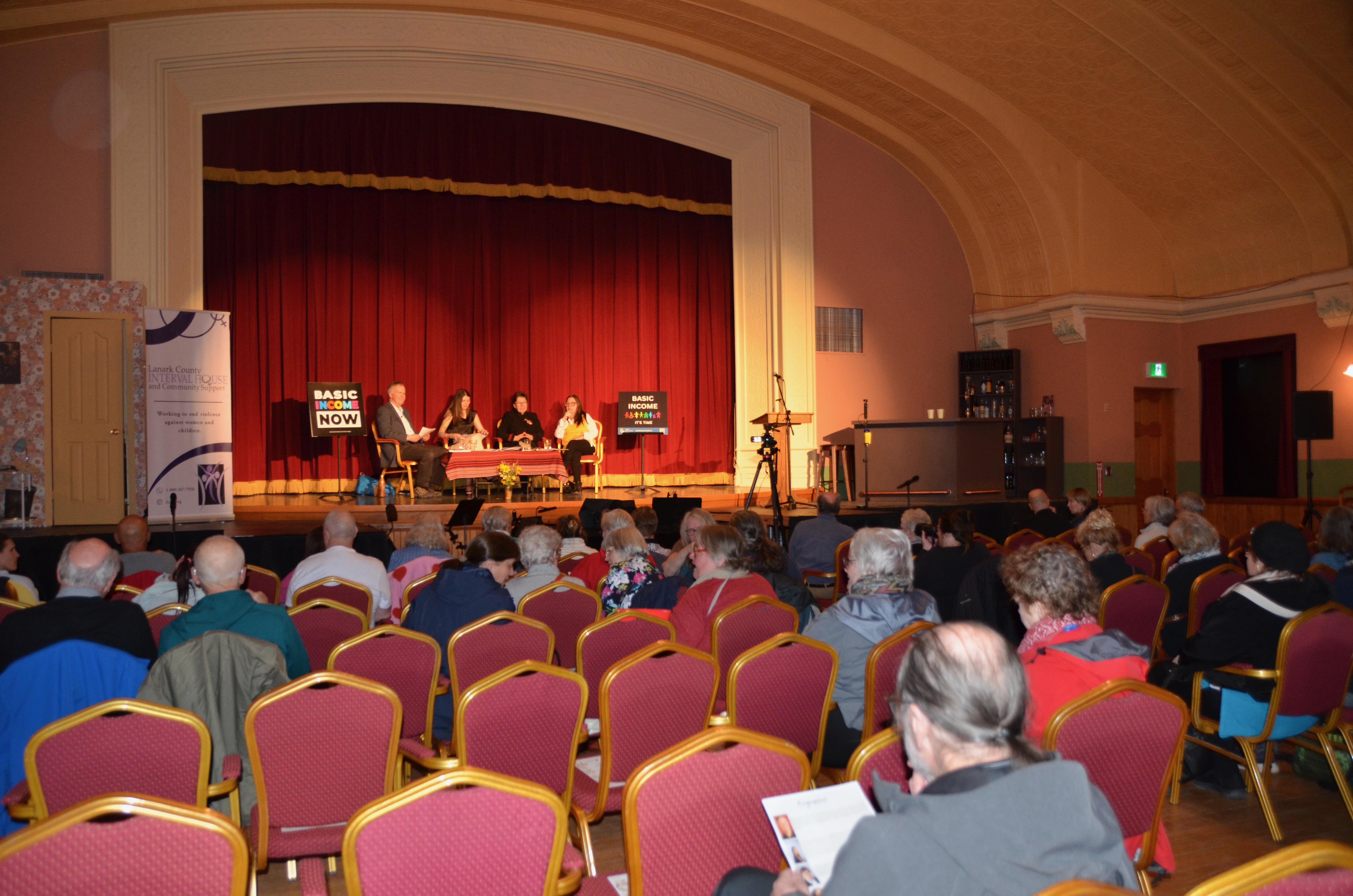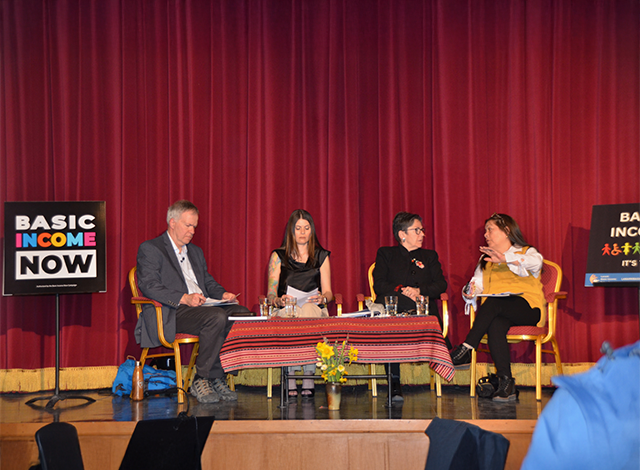The link between financial security in both preventing violence and giving victims a pathway to escape intimate partner violence (IPV) took centre stage in Carleton Place Thursday night, as 60 to 70 people filled the Town Hall auditorium on April 24 to hear from advocates and a survivor.
Basic Income: A Pathway to Help End the Cycle of Intimate Partner Violence, held at Carleton Place Town Hall, featured a panel of four basic income proponents: Rob Rainer, co-founder of the Lanark Basic Income Network and Reeve of Tay Valley; Kristine, an IPV survivor; Senator Kim Pate; and Erin Lee, executive director of Lanark County Interval House Community Support.
Rainer opened the presentations with an overview of what basic income is and how it can be administered.

“Basic income is money distributed by the government to eligible people,” said Rainer. “It should be done on a regular basis; it should be reliable, dependable, and — very important to basic income advocates — there’s no behavioural requirement to receive basic income. There’s no requirement to be in the workforce or seeking work. It’s getting away from all those stigmatizing rules and recognizing the inherent worth of a person and the right to a decent standard of living, which is enshrined in international human rights law, by the way. But we in Canada don’t yet live up to those ideals.”
He explained that a basic income should cover essentials like food, shelter, and living costs. There are two main models: a universal basic income, such as the annual $2,000 distributed to all Alaska residents; and an income-tested version like Canada’s Guaranteed Income Supplement for seniors or the Canada Child Benefit. As Rainer emphasized, the concept isn’t new — just underutilized.
Senator Pate echoed this point. “It was first proposed in the Senate back in 1971,” she noted. Since joining the Senate in 2016, Pate has worked to implement a guaranteed livable income, adding that she sees it as a key method to ease pressure on the health, criminal, and legal systems.
“Note I don’t call it the justice system, because it isn’t,” she said. As a lawyer with over 40 years of experience advocating for marginalized and criminalized individuals, her support for basic income is grounded in firsthand knowledge.
Though implementing such a program would cost an estimated $5 billion annually, the panel argued that the almost immediate savings in healthcare, policing, legal costs, increased productivity, and better health outcomes would far outweigh the initial investment — and surprisingly fast.
Seated in the audience, Liberal candidate Michele Foxton had slipped in quietly and was clearly engaged and taking notes. Judging by audience reactions and the post-talk questions, most attendees were already supporters of the basic income concept.
While the focus of the night was basic income, the event specifically highlighted how it could help reduce intimate partner violence and give those caught in its cycle a potential escape hatch.

“If the government said we’re doing it — basic income — we’d have an additional safety net for victims,” Lee told Hometown News. “We reduce economic vulnerability, which can be a huge contributor to IPV. We reduce it. We don’t end it, but we reduce it. It would empower survivors by providing them with additional resources to be able to leave.” She noted that financial instability is both a trigger for violence and a major barrier to escaping it.
“Many women, when asked the inappropriate question, ‘Why didn’t you leave?’, will identify finances as a big part of that,” said Kristine, as she shared her story and that of another woman harmed by the same abuser. “Having access to a basic income can make the prospect of escaping an abusive relationship much easier to consider. Knowing it will be hard, but that you will be able to provide the basics for yourself and your family is essential.”
The panel unanimously emphasized the deep societal costs of poverty.
“By addressing poverty and economic vulnerability, a basic income can help create a more equitable society where individuals are less likely to engage in or be subjected to violence,” said Lee. “A basic income won’t solve everything, but it’s a critical step on the path to ending intimate partner violence.”
The evening wrapped up with questions — though with few skeptics in attendance, comments of support were the flavour of the evening rather than any challenges to the panel’s message.




Well done Hedy!!!
That. Was an interesting evening!
Hope to see you at our event on the 8th at the Station Theatre.
Basic Income again but here where we need it too!
Katie Hoffman